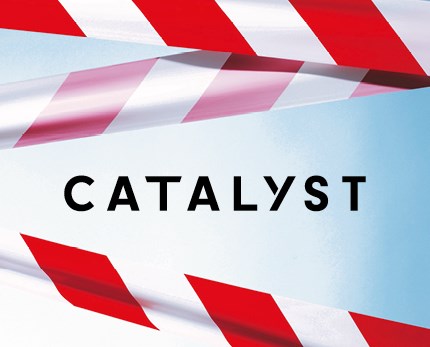The rise and fall of #blackouttuesday

- 12 June 2020
For good or ill, social media is a window into our lives. Companies and individuals find themselves laid bare as viewers probe their preferences, affiliations and behaviours. Ironically, while some use it to broadcast a meticulously curated persona (hashtag Instafabulous), others find it can tip them ‘off-brand’ with a careless tweet.
When it comes to supporting a movement, social media has become the place where people and brands can most easily capture the zeitgeist. Within hours, badges, filters, hashtags and phrases go viral and become de rigeur for anyone wanting to be seen to ‘do the right thing’.
Then, almost as quickly, doing the right thing becomes wrong. Too quick to act and not enough time to think, the trend turns toxic. A badge in support of one group is discovered to undermine another; adopting a hashtag hijacks its original purpose, making it harder for the original users to make progress.
The recent Black Lives Matter protests are a case in point. Turning the internet black seemed like a powerful message of support on Blackout Tuesday. However, some found the action superficial, saying “black screens don’t do anything for black lives”, while the accompanying hashtag #BlackLivesMatter was co-opted by this movement and hampered its original aim, to support protesters marching against the killing of George Floyd and many other black lives lost to police violence.
But in the same breath companies are being told that “to be silent is complicit” in racism and so are rushing to act. Surely, in the heat of the moment, showing you care is a start?
Derek Walker is the owner of brown and browner ad agency in South Carolina and has written for Catalyst magazine in the past on the challenge of true diversity. “There isn't a problem if doing this aligns more with the other things [brands] are doing. In other words, it takes very little effort or causes very little discomfort to do any of this.” But critically he adds: “Partner these things with real action. Develop a plan to ensure the culture of the organization matches what it is saying with these actions. Walk the talk.”
Vikki Ross is a leading copywriter who has worked with Sky and Sony Music Entertainment. She explains why joining in a movement is fraught with difficulty if your company currently isn’t doing the walking: “The problem with doing this is it looks insincere. Worse, it draws attention to what you weren't doing before - or still aren't doing now.”
Yet this doesn’t solve the problem for brands in the here and now, faced with an expectant audience. “Silence is seldom an option. There is no defence against the truth. If the company is unprepared, say so but set a date and timeline to not only speak but to provide details about what it is the company is doing.”
It’s understandable to feel the time pressure, but reacting without preparation only makes matters worse: “Rushing to show you're taking action isn't always a good look, and it can lead to mistakes. And it's not good enough to just say you're doing something - you have to do it too. So wait. Wait until you can prove what action you're taking. Or wait until you can share what action you've taken,” Ross insists.
Walker adds: “Companies get in trouble because they want to "handle" their way out of this. There is no handling a moment like this. Instead speak to people with honesty. Start conversations and dialogues that show the company gets it, and is trying to change. Lip-service will doom a brand.”
Ross agrees. Too often brands are trying to control their message for fear of looking like they’ve got something wrong. It’s time to own that fallibility, she says. “Not knowing how to say something doesn't mean you can't say something. Be honest. Admit you're working through things, and you're learning. And in the meantime, give your voice to those who need it. We're seeing people share so many important resources, and others are shining a light on people and stories we may not have known about before, so get behind those. If you want to have a point of view while sharing, share the people and stories that may be relevant to your brand.”
Walker acknowledges that this is a difficult area to navigate but it is possible. “It is a knife-edge, but communicating a plan that acknowledges that this will take time but that the company is moving as fast as possible to change helps. Communication is the key. No PR speak, let the leaders of the company talk to people, really speak. Acknowledge the areas of change needed instead of letting others point them out. Then tell how they are going to address it and in what kind of timeframe. Stop trying to make things polished or cool, and go for being human.”
To read more about how Derek Walker explains the challenges posed by a fundamental lack of diversity in advertising agencies, read his article ‘Back in Black’ in Issue 4, 2019 of Catalyst. He also shares his views with the CIM Marketing Podcast, episode 4: The Truth About Sex And Shopping.

- 0 views

 FAQs
FAQs
 Log in
Log in
 MyCIM
MyCIM





